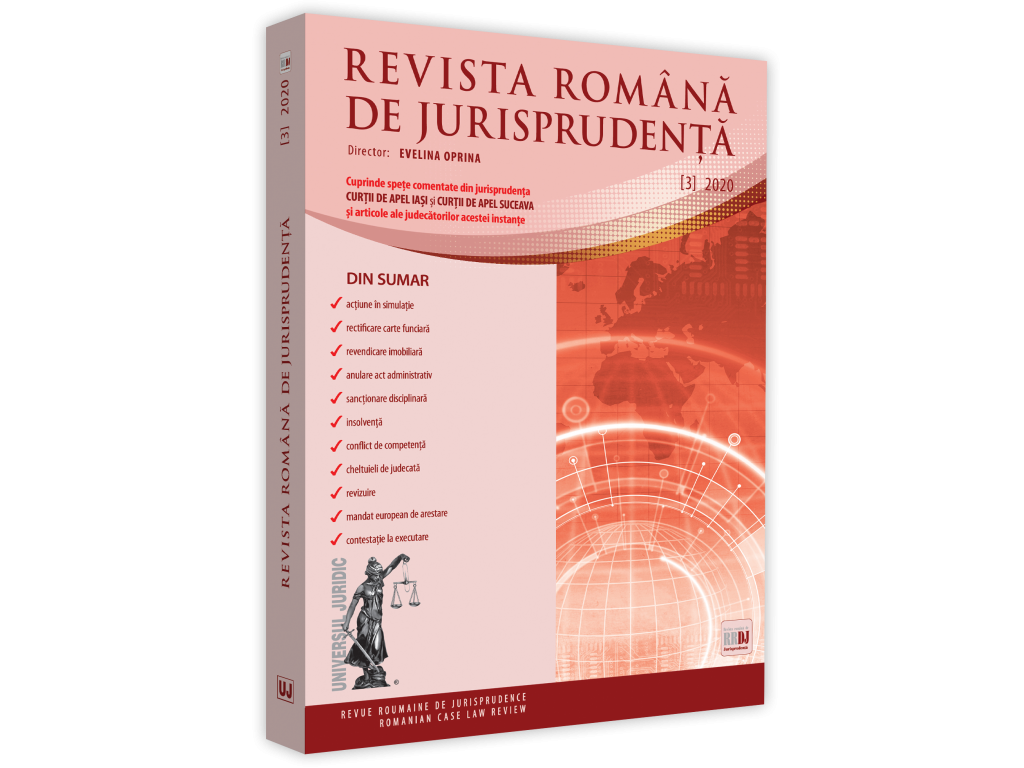VAT. Art. 11 para. (12) of the Fiscal Code (Law 571/2003). Purchase of goods from a taxable person declared inactive. Condition for VAT discount for the goods purchased. Denial of deduction. Inapplicability of the CJEU case C-101/16 SC Paper Consult
DREPT ADMINISTRATIV
Abstract
According to Art. 11 para. (12) of the Fiscal Code (Law no. 571/2003), the beneficiaries who purchase goods and / or services from taxpayers taxable persons established in Romania, after their registration as inactive in the Register of inactive / reactivated taxpayers according to Art. 781 of GO no. 92/2003, republished, with the subsequent amendments and completions, do not have the right to deduct the expenses and the value added tax
related to said acquisitions. By the Decision C-101/16 of CJEU, the court ruled that Directive 2006/112/CE of the
Council of 28 November 2006 on the joint system of the value-added tax must be construed as opposing to a domestic regulation such as that subject to the main case
(Art. 11 para. 12 of the Fiscal Code) pursuant to which the right to deduct the value-added tax is denied to a taxable person on account that the operator who provided services in exchange for an invoice stating separately the price and the value-added tax was declared inactive by the fiscal administration of another member state and said declaration of inactivity is public and accessible via internet to any taxable person in said state, when said denial of deduction is systematic and final and does not allow for making proof of absence of a fraud or loss of tax income. Although the decision of the European court ruled the nonconformity of the domestic legal provisions to the community regulations, said domestic provisions do not remain inapplicable de plano, and the decision of the Court of Justice of the European Union is not effective per se, in an automatic and abstract way, independently from the particular situation, the existence or inexistence of a fraud or an identifiable fiscal loss. Consequently, the fiscal administrative act issued on the basis of a domestic law provision in conflict with a community law regulation may not be declared null only based on the existence of said abstract legal conflict, without examining the concrete situation and exercising the duties by the domestic court within the limits of the margin permitted by the Decision of the Court of Justice of the European Union and said duties fall within the expression from
many decisions of the Court of Justice of the European Union including “subject to the verifications to be made by the referral court”. Consequently, the judicial review court held that the first court misapplied case C-101/16
SC Paper Consult and examined the case only from an abstract, normative perspective. The simple non-compliance of the domestic law to the community law may not trigger the annulment of the administrative fiscal act in case of a fiscal loss and its existence of inexistence was to be determined in the ruling rendered by the European Court of Justice upon the domestic court and the power’s power to prove. The reality of the economic operations and the existence of evidentiary documents are not sufficient for the recognition of the right to deduct the VAT in case of existence of a fiscal loss undertaken by the taxpayer.








